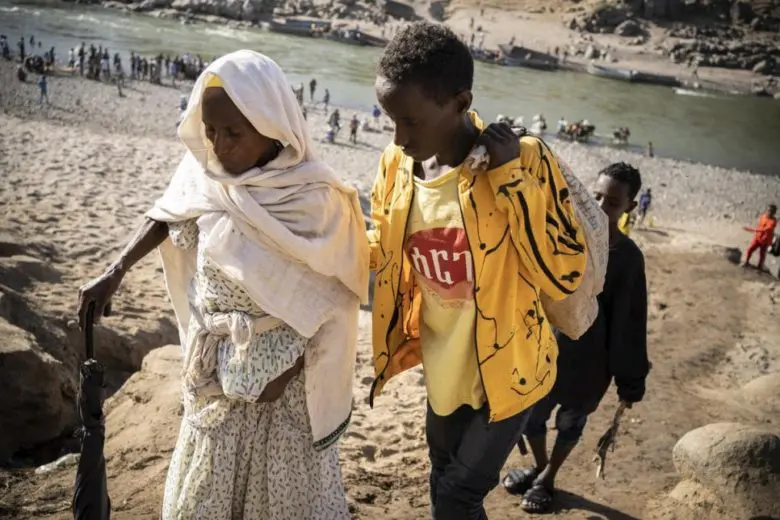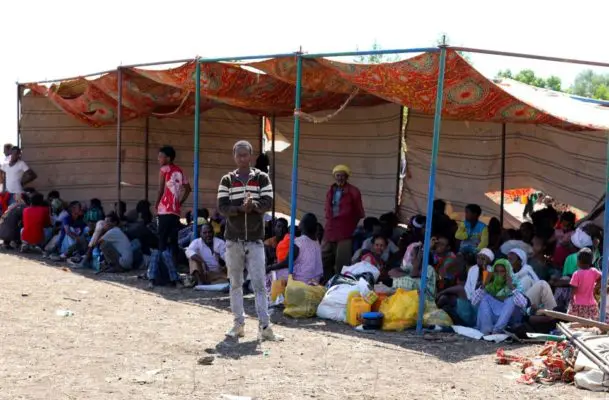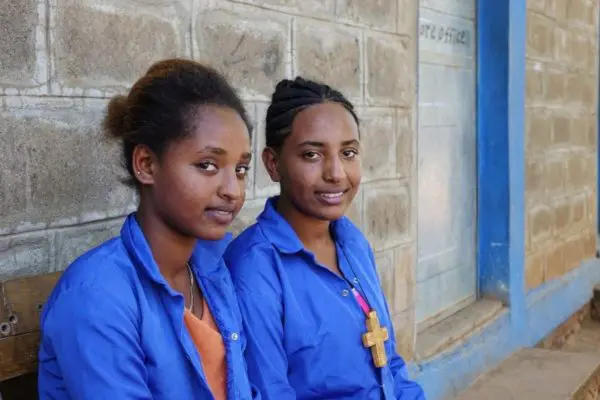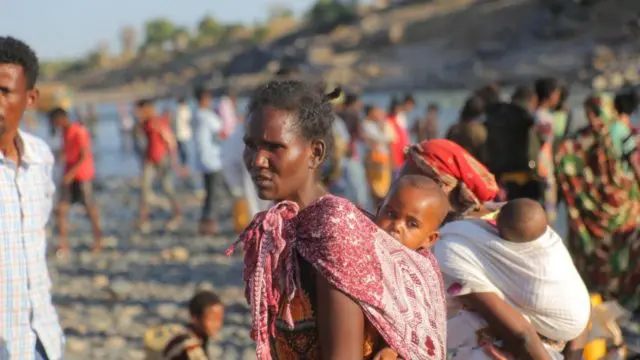
Ethiopian refugees, fleeing clashes in the country’s Tigray region, cross the Tekeze river into Hamdayet, Sudan. © UNHCR/Olivier Jobard
This is a summary of what was said by UNHCR spokesperson Babar Baloch – to whom quoted text may be attributed – at today’s press briefing at the Palais des Nations in Geneva.
UNHCR, the UN Refugee Agency, stands ready to resume its full humanitarian activities in the Tigray region as soon as the situation allows, following an agreement to restore access.
The agreement was reached recently between the UN in the country and the Federal Government to facilitate access to aid organizations to provide assistance to civilians affected by the month-long conflict.
In Shire in Tigray, UNHCR staff in the town together with partners have already distributed water, high energy biscuits, clothes, mattresses, sleeping mats and blankets to an estimated 5,000 internally displaced.
However, we continue to receive disturbing reports regarding the Eritrean refugee camps in the region, which remain incommunicado. The details of damages and disruptions remain unknown until we are able to reach them and verify the information.
UNHCR is discussing with the federal government’s refugee agency on logistics arrangements, and the need to assess the security situation before the resumption of humanitarian activities.
Fears are that many Eritrean refugees may have already fled the camp in search of safety.
Meanwhile, inside neighbouring Sudan, Ethiopian refugee arrivals continue with the total number have now crossed 47,000. More than 1,000 arrived yesterday, the majority in the evening. Refugees are telling UNHCR of more people on the move in search of safety. A small number of Eritrean refugees have also arrived from the Tigray region in recent days.
UNHCR, together with the Sudanese authorities, has moved some 11,150 refugees from Hamdayet and Abderafi border points to Um Rakuba camp, 70 kilometres away from the Ethiopian border.
Many refugees say they prefer to remain near the border to wait for family members still in Ethiopia, or in hopes they will be able to return home soon – including farmers, who have fled during the harvesting season. But refugees also say they are fearful of more violence inside Tigray.
For more information on this topic, please contact:
- In Khartoum, Sophia Jessen, jessen@unhcr.org, +249 900 921 267
- In Sudan, Dana Hughes, hughes@unhcr.org, +249 96 701 9105
- In Ethiopia, Juliette Stevenson, stevenso@unhcr.org, +251 944 109 031
- In Geneva, Babar Baloch, baloch@unhcr.org, +41 79 513 9549
- In New York, Kathryn Mahoney, mahoney@unhcr.org, +1 347 443 7646
Originally published by UNHCR on 7 December 2020.





